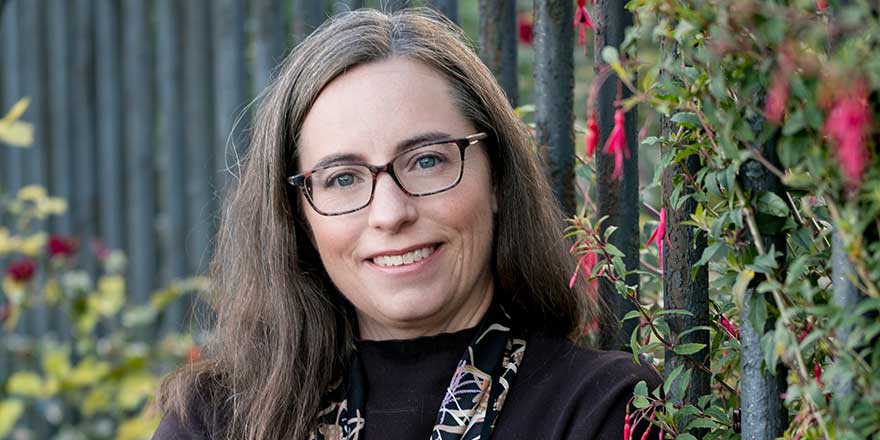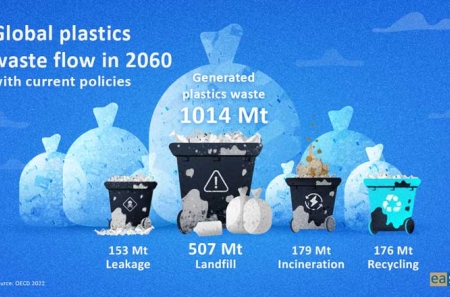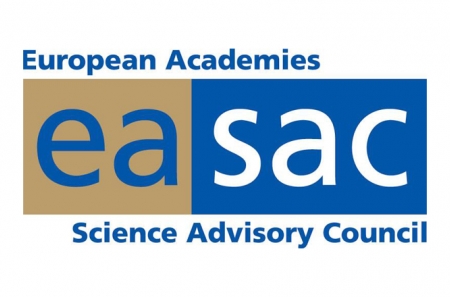
World academies launch an action plan to combat both climate change and biodiversity decline
22 October 2021Downloads
The new IAP Statement ‘Climate Change and Biodiversity: Interlinkages and policy options’ highlights that climate and biodiversity policies are currently insufficiently connected and addressing climate change and biodiversity decline together is central to achieving the Sustainable Development Goals
Climate change and biodiversity
Climate change and biodiversity decline are major challenges of our time. Both are predominantly caused by human activities, with profound consequences for people and the ecosystems on which we depend. In 2021 and 2022, the major United Nations conferences on biodiversity (COP15) and on climate change (COP26) will provide an opportunity for governments to focus international attention on the interconnectedness and interdependence of climate change and biodiversity.
This is why the InterAcademy Partnership (IAP), a global network whose more than 140 member academies constitute more than 30,000 leading scientists, engineers and health professionals in over 100 countries, has issued a new Statement ‘Climate Change and Biodiversity: Interlinkages and policy options’.
The Statement examines interconnections between biodiversity and climate change and outlines how measures that benefit biodiversity have the potential to support climate action, and how some aspects of climate action can support biodiversity. It also discusses instances where some approaches to address climate change can undermine efforts to protect or enhance biodiversity.
“The year 2021 should be one of the turning points in history, in which the international community collaborated to make a long-lasting difference by streamlining and integrating climate change and biodiversity policies and embarking on a pathway towards a stable climate and a vibrant biosphere,” says Sir Richard Catlow, IAP co-President and member of the UK Royal Society.
As highlighted in the Statement, some policy measures are beneficial in both areas, helping to mitigate and adapt to climate change as well as to conserve and restore biodiversity. However, this is not guaranteed, and some climate actions can undermine biodiversity goals.
Key policy recommendations include:
- Build a sustainable food system with climate- and biodiversity-friendly agricultural practices, responsible food trade, and equitable food distribution.
- Reduce rates of natural ecosystem loss and degradation, protect, restore and expand natural ecosystems, and increase landscape connectivity.
- Ensure that expansion of renewable energy systems has positive biodiversity benefits built into its design.
- Recognise, respect and safeguard the rights and livelihoods of local and traditional users of ecosystems when implementing biodiversity and climate change actions.
- Discourage ecosystem-based approaches to climate mitigation that have negative outcomes for biodiversity, such as tree planting in inappropriate ecosystems, tree monocultures, and unsustainable energy crops.
The Academy’s Secretary for Science, Catherine Godson MRIA, has endorsed the publication of the statement which will now be brought to the attention of Irish policymakers:
‘’As an independent forum comprising Ireland’s leading experts, the Royal Irish Academy plays a key role as knowledge brokers in evidence-based policy and we are delighted to have been able to work with the IAP on this project and support the vital role of science in seeking evidence-based solutions to challenging global issues. This new statement highlights the important connection between biodiversity and climate change and makes several important recommendations for policy. It has been produced by leading experts to instigate discussions and inform the work of policymakers and as Ireland’s national academy we will ensure that this work is considered in the Irish policy arena.’’
As part of this project, the Royal Irish Academy was represented by Yvonne Buckley MRIA. Professor Buckley’s primary expertise is in comparative plant population dynamics, invasive plant management and predicting responses of populations to global change. She will serve as Vice-President for Biodiversity and Climate Action at Trinity College Dublin from January 2022. Upon the publication of the IAP Statement, Professor Buckley said:
“It was wonderful to work with academy members from all over the world who were all committed to the need to integrate solutions to the biodiversity and climate crises. The research underpinning the policy recommendations and general principles for action is compelling and it is only by working together across research and global policy that we will be able to develop and implement solutions at the scale and speed needed to enable transformative change to meet our global biodiversity and climate obligations.”
Royal Irish Academy President Mary Canning PRIA has welcomed the publication of the IAP statement:
‘’The Royal Irish Academy is a proud member of the InterAcademy Partnership and I am delighted to see the publication of this timely and topical report, especially with the COP26 summit taking place in the coming weeks. The Royal Irish Academy has a strong track record of working on issues concerning climate change and biodiversity and we were delighted to have the involvement of one of our key experts in this important project..’’
In addition to the IAP Statement ‘Climate Change and Biodiversity: Interlinkages and policy options’, A Royal Irish Academy Briefing Paper produced by Prof Buckley summarises the key messages from the IAP and highlights the implications for Ireland.
About the InterAcademy Partnership (IAP)
Under the umbrella of the InterAcademy Partnership (IAP) (https://www.interacademies.org/), more than 140 national, regional and global member academies work together to support the vital role of science in seeking evidence-based solutions to the world’s most challenging problems. In particular, IAP harnesses the expertise of the world's scientific, medical and engineering leaders to advance sound policies, improve public health, promote excellence in science education, and achieve other critical development goals. IAP academy members constitute more than 30,000 leading scientists, engineers and health professionals in over 100 countries.
A central focus of IAP's mission is to reach out to society and participate in discussions on critical global issues in which science plays a crucial role, and since its inception in 1993, IAP has been producing statements on issues of fundamental importance to humanity. These statements – which are released only once they have been endorsed by the majority of IAP members – are not only a reflection of the major issues that confront society but are also evidence of IAP's ongoing commitment to society.



